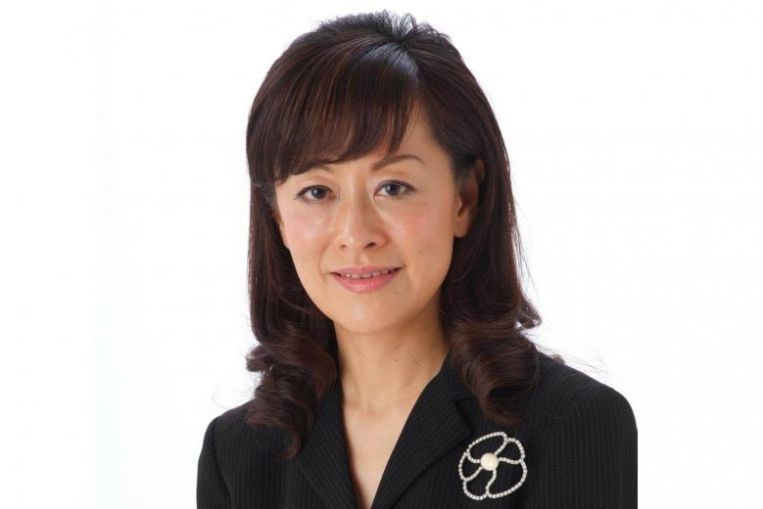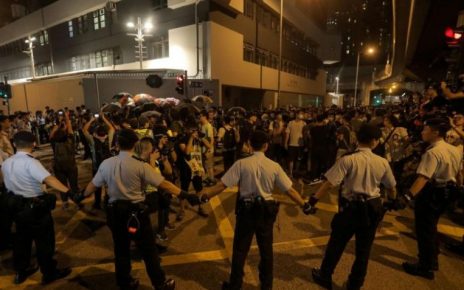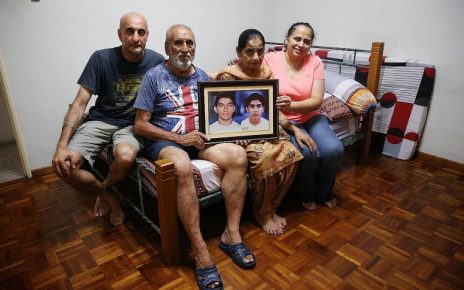
A Disciplinary Tribunal has found guilty of grossly improper professional conduct in her handling of the last will of the late Mr Lee Kuan Yew, Singapore’s founding prime minister.
Her actions were of sufficient gravity that the matter will be referred to the Court of Three Judges, the highest disciplinary body to deal with lawyers’ misconduct.
If found guilty, Mrs Lee, 61, the wife of Mr Lee’s younger son Hsien Yang, could face a fine, suspension or could be disbarred as a lawyer.
The two-man tribunal appointed by Chief Justice Sundaresh Menon described Mrs Lee as a “deceitful witness, who tailored her evidence to portray herself as an innocent victim who had been maligned”.
This was a “facade”, the tribunal said. “Before us, she lied or became evasive whenever she thought it was to her benefit to lie or evade.”
Mr Lee Hsien Yang’s conduct was “equally deceitful”, the tribunal said in its 206-page report released last week.
“He tried to hide how he and his wife had misled his own father, Mr Lee, on the last will. He had no qualms about making up evidence as he went along. We found him to be cynical about telling the truth.”
The matter centres on the role Mrs Lee played in the signed on Dec 17, 2013.
Mr Lee died on March 23, 2015 at the age of 91.
The tribunal said the facts exposed an “unsavoury tale” of how the couple persuaded Mr Lee – then 90 and in poor health having been recently hospitalised for serious medical conditions – to sign a new will without his usual lawyer to advise him.
“They cut off that lawyer from communications with Mr Lee on the last will, and rushed through the execution of the last will, in her absence,” the report said.
Mrs Lee took over as the lawyer to prepare the last will and advise Mr Lee. She “misled Mr Lee on the terms of the last will”. The tribunal said Mr Lee was persuaded to sign the last will in a matter of 16 hours. Mrs Lee had sent a draft of it to him at 7.08pm on Dec 16, 2013. He signed it at 11.10am the next day.
The last will differed from the one before it, and from some changes that Mr Lee had wanted and discussed with his lawyer – Ms Kwa Kim Li – four days earlier.
Mrs Lee, the tribunal said, “gave the briefest of advice to Mr Lee, and did not alert Mr Lee to all the differences between what Mr Lee had earlier wanted and what the last will actually provided for”.
Among other things, she denied she was Mr Lee’s lawyer and said she was helping as a family member and Mr Lee’s daughter-in-law.
She also testified that she had followed her husband’s instruction as she was an “obedient wife”.
The saga can be traced to the between Prime Minister Lee Hsien Loong and his siblings, Dr Lee Wei Ling and Mr Lee Hsien Yang, over the fate of their parents’ home at 38 Oxley Road.
The final will included a clause on the demolition of the house, which was in early versions of the will but subsequently deleted.
It also reinstated equal shares of Mr Lee’s estate to all three children. The penultimate will had given daughter Dr Lee an extra share. The last will also took out a gift-over clause, which provided for scenarios where any of Mr Lee’s children pre-deceased him.
In January last year, the Attorney-General’s Chambers (AGC) made a complaint to the Law Society about possible professional misconduct by Mrs Lee, a lawyer of 37 years’ standing, given that her husband was a beneficiary under the will. The Law Society then applied to the Chief Justice to appoint a disciplinary tribunal to look further into the matter.
The tribunal, comprising Senior Counsel Sarjit Singh Gill and lawyer Leon Yee Kee Shian, found all charges against Mrs Lee “proven beyond reasonable doubt”.
One charge was on how, as her father-in-law’s retainer, she had failed to advance his interest, unaffected by her own interest and/or that of her husband. She had shown this by preparing and arranging for the execution of the will, in which her husband was to get a one-third share of the estate.
The second charge said that as retainer, Mrs Lee had breached rules by acting on the one-third share and failing to advise Mr Lee to be independently advised on the “significant gift”.
The tribunal held its hearings last July and witnesses included lawyer Bernard Lui from Mrs Lee’s firm Stamford Law.
Mr Lui and his colleague Elizabeth Kong had gone to 38 Oxley Road on the morning of Dec 17. They were in the house for 15 minutes and, in that time, they met Mr Lee and the last will was executed.
Mrs Lee testified in her own defence and husband Hsien Yang also appeared as a witness.
During the hearings, the Law Society’s lawyers, Senior Counsel Tan Chee Meng, Ms Koh Swee Yen and Mr Eugene Oh, argued there was an implied retainer between Mrs Lee and the late Mr Lee.
Altogether, six wills were done earlier, all with Ms Kwa as lawyer, but the final will was with Mrs Lee.
The lawyers also argued that the late Mr Lee was not advised on dropped clauses from earlier drafts – such as on demolition of 38 Oxley Road – that had been reinstated in the draft last will.
EXTRACT FROM TRIBUNAL REPORT: AN UNSAVOURY TALE
“The facts expose an unsavoury tale. The respondent (Mrs Lee Suet Fern) and Mr Lee Hsien Yang, on Dec 16, 2013, persuaded their aged father-in-law/father, Mr Lee (then a 90-year-old man in poor health, who had recently been hospitalised for several weeks, with serious medical conditions) to sign a new will, without his usual lawyer (Ms Kwa Kim Li), to advise him. They cut off that lawyer… from communications with Mr Lee on the last will, and rushed through the execution of the last will, in her absence.
The respondent took over as the lawyer to prepare the last will and advise Mr Lee, and misled Mr Lee on the terms of the last will that he was going to sign. Mr Lee was persuaded into signing the last will within 16 hours – the respondent sent a draft of the last will at 7.08pm on Dec 16, 2013, and it was signed at 11.10am on Dec 17, 2013.
The will that Mr Lee signed was very different from both the penultimate will, and the proposed codicil (that Mr Lee had discussed and agreed with Ms Kwa Kim Li, on Dec 13, 2013, four days before he signed the last will prepared by the respondent). The respondent gave the briefest of advice to Mr Lee, and did not alert him to all the differences between what Mr Lee had earlier wanted and what the last will actually provided for.”
EGREGIOUS AND GROSSLY IMPROPER
“This is not a case of sheer incompetence, inadvertent negligence, or even reckless indifference. The respondent (Mrs Lee Suet Fern), as Mr Lee’s lawyer, deliberately failed to discharge the duties that she was supposed to perform. Her breaches are egregious…
The respondent’s conduct clearly lacked the integrity, probity and trustworthiness required of an advocate and solicitor. What she did was dishonourable, both to herself, as a person, and to the legal profession. It was grossly improper conduct…”
EXTRACT FROM TRIBUNAL REPORT: SERIOUS QUESTIONS ON MOTIVES
“There is no evidence why Mr Lee suddenly decided to completely disregard what he had agreed with Ms Kwa Kim Li, on these matters, just three or four days earlier, to revoke his penultimate will (in its entirety), and sign a new will. There is also no evidence as to why the first will was chosen, when it had been superseded five times, by five other wills.
The respondent and Mr Lee Hsien Yang say that Mr Lee decided this himself. We have only their word for this – and, in this case, on many aspects where there was other evidence, it was clear that both of them were lying, and had acted dishonestly.
Mr Lee’s conduct in respect of the last will is quite different from the care he seems to have exercised just a few days earlier, when he was discussing with Ms Kwa on amending his penultimate will. The circumstances raise serious questions, including on the respondent’s and Mr Lee Hsien Yang’s motives.”
Additionally, Mr Lee was not advised on how the last will was different from the sixth or penultimate will done in 2012.
Mrs Lee was defended by Senior Counsels Kenneth Tan and Walter Woon, lawyer Abraham Vergis and two others from Providence Law.
She denied she was Mr Lee’s lawyer for the last will and argued there was no implied retainer. She said she was helping as a family member and did not give or take instructions from Mr Lee, who had access to his own lawyer at all times.
She argued that if she was in a position of conflict of interest, Mr Lee was fully aware of her involvement and chose to proceed.
The tribunal, considering the evidence and submissions, was not convinced and said it was “quite clear (Mrs Lee) was represented to Mr Lee as the lawyer responsible for the last (and not first) will”.
The tribunal noted: “Mr Lee, who was very frail and in poor health, was misled by the very people whom he trusted: his son Lee Hsien Yang and daughter-in-law. “
Changes not what Mr Lee had in mind for last will
In December 2013, Mr Lee Kuan Yew had an e-mail exchange with his lawyer Kwa Kim Li on changes he wanted made to his sixth will.
One, he wanted to give his three children equal shares in his estate, instead of initially giving daughter Lee Wei Ling an extra share.
Two, he wanted to bequeath two carpets, one silk and the other wool, to his younger son Lee Hsien Yang.
Mr Lee Kuan Yew instructed Ms Kwa to make these changes through a codicil – or amendment – to what would be his penultimate will.
What he got was a revision of his will to include clauses he had previously deleted, including on demolition of the house at 38 Oxley Road, as well as other changes he was not told about, the report of a Disciplinary Tribunal into the conduct of Mr Lee’s daughter-in-law, lawyer Lee Suet Fern, found.
The sixth will did not contain any demolition clause – which had been drafted for previous versions of the will but was subsequently deleted.
It also provided for Dr Lee Wei Ling to live at 38 Oxley Road subject to Mr Lee Hsien Loong’s consent, and for a gift-over clause in the event that one of Mr Lee Kuan Yew’s children died before he did.
The tribunal found that Mr Lee Kuan Yew signed the last will without legal advice from his usual lawyer, Ms Kwa. In fact, Mr Lee Hsien Yang cut Ms Kwa out of communications on the last will.
His wife Lee Suet Fern misled her father-in-law on its terms, and told him the draft last will was the same as the first will that he executed in 2011. This was untrue, the tribunal noted, saying: “Such misleading is in breach of a solicitor’s duties.”
Neither did Mrs Lee or her husband Lee Hsien Yang advise Mr Lee Kuan Yew on the differences between the draft last will and the sixth, or explain why the first will was chosen when it had been superseded five times.
“The respondent and Mr Lee Hsien Yang say that Mr Lee decided this himself. We only have their word for this – and, in this case, on many aspects where there was other evidence, it was clear that both of them were lying, and had acted dishonestly,” the tribunal said in its report.
It added that Mr Lee Hsien Yang “compounded his dishonesty by accusing Ms Kwa of lying, in public, when Ms Kwa said that she had not drafted the last will”.
About the demolition clause
The first version of Mr Lee Kuan Yew’s will had a “demolition clause” – that the house at 38 Oxley Road should be demolished after his death, but this was to be postponed until after his daughter, Dr Lee Wei Ling, had moved out.
This was superseded by another version in the second, third and fourth wills, and removed completely in the fifth and sixth wills.
The Disciplinary Tribunal said Mrs Lee Suet Fern should have checked with Mr Lee whether he wanted the clause reinserted in the draft of the last will that she sent him, but she did not do so. “There was no conversation at all,” she told the tribunal last July.
The question of whether to demolish the house is at the heart of the public feud between Prime Minister Lee Hsien Loong and his siblings Lee Wei Ling and Lee Hsien Yang.
When the estate of Mr Lee Kuan Yew loaned items to the National Heritage Board for an exhibition in 2015, Mr Lee Hsien Yang imposed the condition that they had to be displayed with the first half of the clause – that Mr Lee Kuan Yew wanted the house knocked down when Dr Lee Wei Ling was no longer living in it.
But PM Lee later said his siblings did not want to include the second half of the clause – which stated what Mr Lee Kuan Yew wanted if the house could not be knocked down – thereby misleading the public on his intentions.
It reads: “If our children are unable to demolish the house as a result of any changes in the laws, rules or regulations binding them, it is my wish that the house never be opened to others except my children, their families and descendants. My view on this has been made public before and remains unchanged.”



